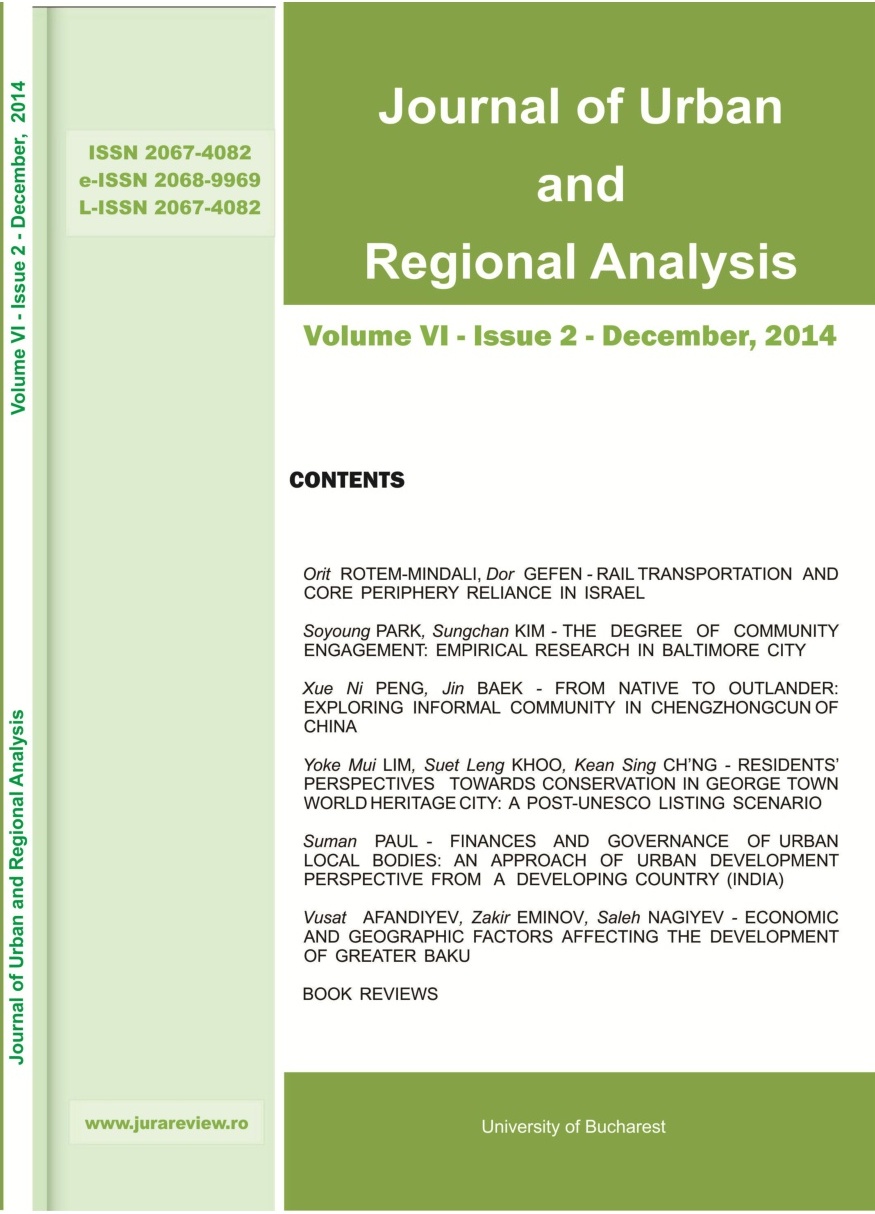ECONOMIC AND GEOGRAPHIC FACTORS AFFECTING THE DEVELOPMENT OF GREATER BAKU
ECONOMIC AND GEOGRAPHIC FACTORS AFFECTING THE DEVELOPMENT OF GREATER BAKU
Author(s): Saleh Nagiyev, Zakir Eminov, Vusat AfandiyevSubject(s): Recent History (1900 till today), Demography and human biology, Rural and urban sociology, Economic development, Migration Studies, Socio-Economic Research
Published by: Editura Universitară
Keywords: city; settlement; district; urbanization; agglomeration of Baku; Greater Baku;
Summary/Abstract: Globally, the responsible factors for the ongoing development of urbanization are the high speed of population growth, and the mass migration of humans to cities and large urban areas. In most countries, this process resulted in the emergence of ‘pseudo-urbanization’ which is difficult to be regulated. The purpose of the carried researches to determine the development priorities in the territory of Greater Baku – the capital city of the Republic of Azerbaijan; to define the problems that take place in this connection; and to develop ways of elimination of these problems. The reason of taking Baku as a research area is connected with some of the factors. Firstly, studies on Baku have been conducted based on the Soviet geographical and urban planning school and their methods for a long period. In this regard, it is necessary to carry out research in this field based on the principles adopted in most countries. Secondly, since 1992, the intensive accumulation of population in the territory of the capital city and the surrounding areas is being observed because of socio-economic problems. As a result, the process of pseudo-urbanization intensified, entailing a densely-populated area. Thirdly, low-rise buildings still continue to exist in the large areas within the territory of Baku, and they are not associated with the functional structure of the city. This situation creates many challenges, particularly in terms of density growth and effective use of the city’s territory. Finally, numerous new buildings have been constructed in the residential areas of Baku in recent years, and this may entail serious problems in water supply, energy provision, and utilities. The study is carried out referring to previous works of researchers, statistic data, and the results of the population census conducted in 1959-2009.The practical significance of the scientific work is that positive and negative factors affecting the further development of Greater Baku are defined together with showing the optimal ways of development.
Journal: Journal of Urban and Regional Analysis
- Issue Year: 6/2014
- Issue No: 2
- Page Range: 203-218
- Page Count: 16
- Language: English

